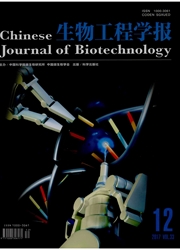

 中文摘要:
中文摘要:
一百多年前,"魔术子弹"学说首次提出了具有靶向特异性的抗体可以用来治疗疾病。此后,随着单克隆抗体制备技术的成熟,以及癌症血清疗法的发展,靶向肿瘤抗原的治疗性抗体开始进入临床,至今已有20余种抗体药物用于癌症的治疗。近两年,以免疫检查点蛋白拮抗剂、双特异性抗体、抗体药物偶联药物等为代表的新一代抗体药物,不断在治疗恶性肿瘤上取得突破性进展。本文回顾了抗肿瘤抗体的发展历程,总结了新一代抗体药物的作用机制与构建策略,以及主要临床副作用。并对基于抗体的肿瘤免疫疗法未来发展趋势进行了展望。
 英文摘要:
英文摘要:
More than 100 years ago, Paul Ehrlich first proposed the "magic bullets" concept in which antibody targeting disease related antigen can fight against human disease. Since then, with the development of hybridoma technology for monoclonal antibody production and cancer serum therapy, immunotherapy based monoclonal antibody bas been used in chinical practice to treat hematological and solid tumor. Up to now, more than 20 recombinant antibody drugs were approved for cancer treatment worldwide. In recent years, the next-generation antibody drug, including immune checkpoint antagonists, bi-specific antibody, and antibody drug conjugates have successfully cured various malignant tumor. This review recalled the history of monoclonal antibody as potent immunotherapy of cancer firstly, and focused on the next-generation antibody drug’s mechanism of action, construction strategies, and the side effects in clinic. Lastly, the future trend of anti-tumor antibody drug was also discussed.
 同期刊论文项目
同期刊论文项目
 同项目期刊论文
同项目期刊论文
 期刊信息
期刊信息
